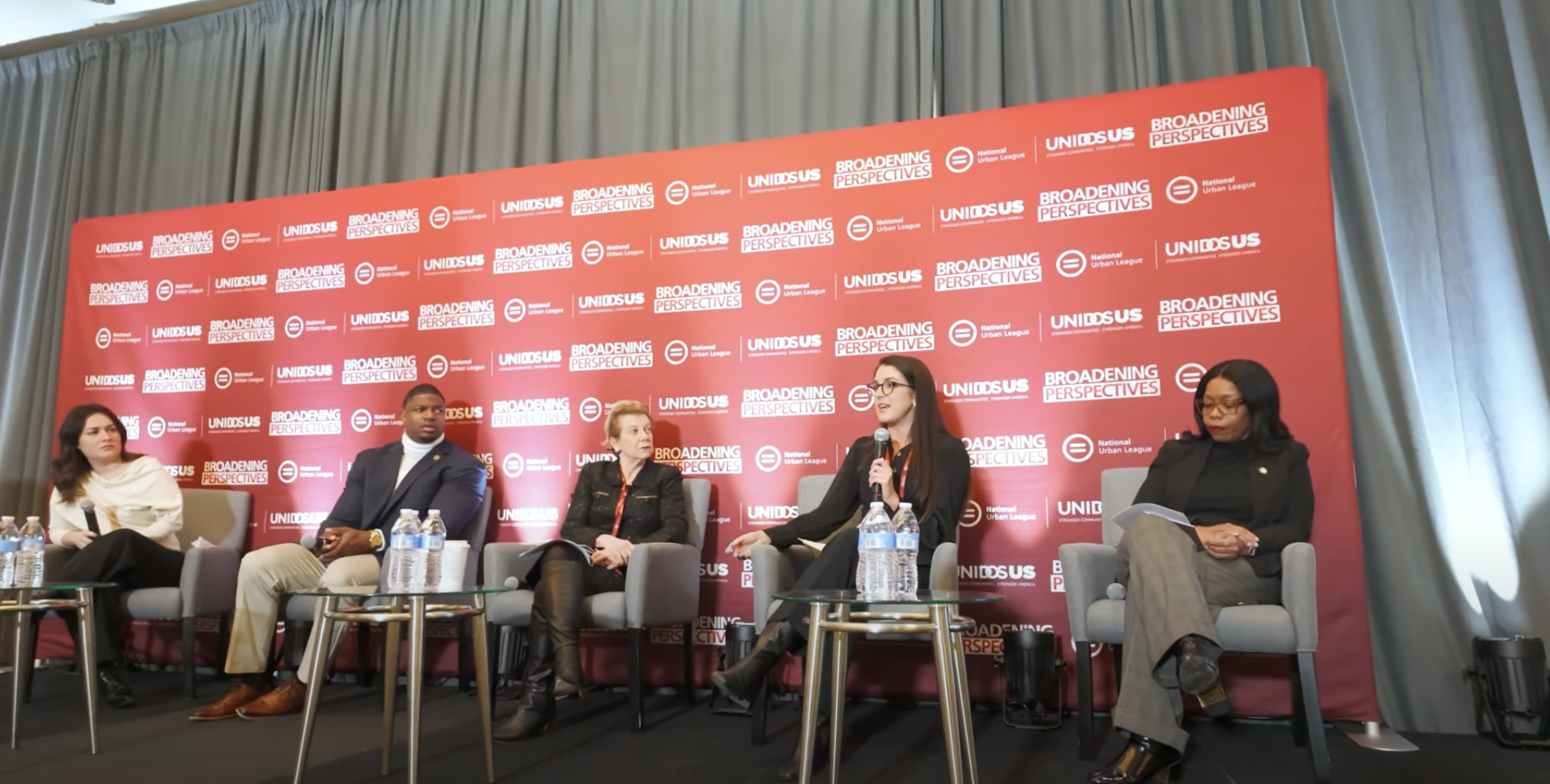Broadening Perspectives Project: Third and Final Statewide Convening in New York

The third and final statewide convening of the Broadening Perspectives Project concluded in New York, marking the end of a journey that began in California and continued in Ohio. This event brought together a diverse group of stakeholders — including educators, policymakers, community leaders, and families — all focused on the future of assessments and accountability in education. Over the course of the day, participants engaged in deep discussions that highlighted the need for systemic changes to ensure more equitable, transparent, and supportive educational practices for all students, especially those from historically marginalized communities.
Level Setting and Welcome Remarks

The convening opened with a call to action from Adenike Huggins, Senior Director of Education Policy and Advocacy at the National Urban League, who encouraged attendees to bring their personal experiences into the conversation. "Every single one of us is an expert of our own experience, and we want you to bring that expertise to these conversations," she said.
She emphasized that today's discussions were not just about pointing out flaws, but about envisioning a better future for students across the country, where assessments and accountability systems reflect the real needs of the communities they serve.
Hal Smith, Senior Vice President of Education and Health at the National Urban League, echoed these sentiments, emphasizing the organization's unwavering commitment to equity. "We will not move away from equity. That is one of our founding principles," Smith declared.
Panel Discussions: Bridging Gaps and Reimagining Education

The day's first panel explored the federal government's evolving role in shaping the future of education. Shelley Mayer, Chair of the New York State Senate Education Committee, noted that while funding is critical, it's not the only solution. "We've got to have a different kind of school that works for all students, particularly children of color and low-income students," Mayer said.
Pascal Small, Deputy Director of Impact and Engagement at the National Parents Union, shared insights from the Leaders Council on Assessment and Accountability. "We've got to stop doing things the way we always have. It hasn't worked for over 100 years," Small remarked. She called for a transformation in how assessments and accountability are approached. "We need culturally relevant strategies and accessible data that make it clear what the next steps are," she added.
The second panel delved into how innovative schools use assessments to support student learning. Shawn Davenport, Superintendent of Harlem Community School District 5, highlighted the importance of creating a welcoming school environment. "When you walk into a school, you need to feel a sense of belonging," he said.
Alan Chang, who oversees 50 New York City high schools, reinforced this idea by stressing the importance of student agency and real-world learning. "When we ask students to demonstrate their mastery, it shouldn't just be in a classroom. It should be through internships, projects, and community-based learning," he said.
Interviews: Voices from the Ground

The day was further enriched by interviews with leaders driving change. Mark Abraham, President and CEO of MBA Consulting Services, underscored the need for data-driven approaches. "For Black and Brown children, we need to show that we're providing a quality education, but we also need to back that up with data that proves it," he said.
Rita Joseph, New York City Councilmember and Education Chair, also weighed in during an interview, emphasizing the importance of coalition work. "We must work in coalition," Joseph stated.
A Call to Action and the Road Ahead
As the convening wrapped up, Hal Smith's closing remarks brought the discussions full circle. "It's not just about today," Smith reflected. "It's about setting the stage for a deeper investment in dialogue, coalition building, and agenda setting for the future."
The third and final convening of the Broadening Perspectives Project proved that meaningful change is possible when communities come together to share their expertise. As the National Urban League and its partners move forward, the focus will remain on pushing for systemic reform, fostering inclusive practices, and ensuring that the voices of those most impacted by education policies are heard and valued.

